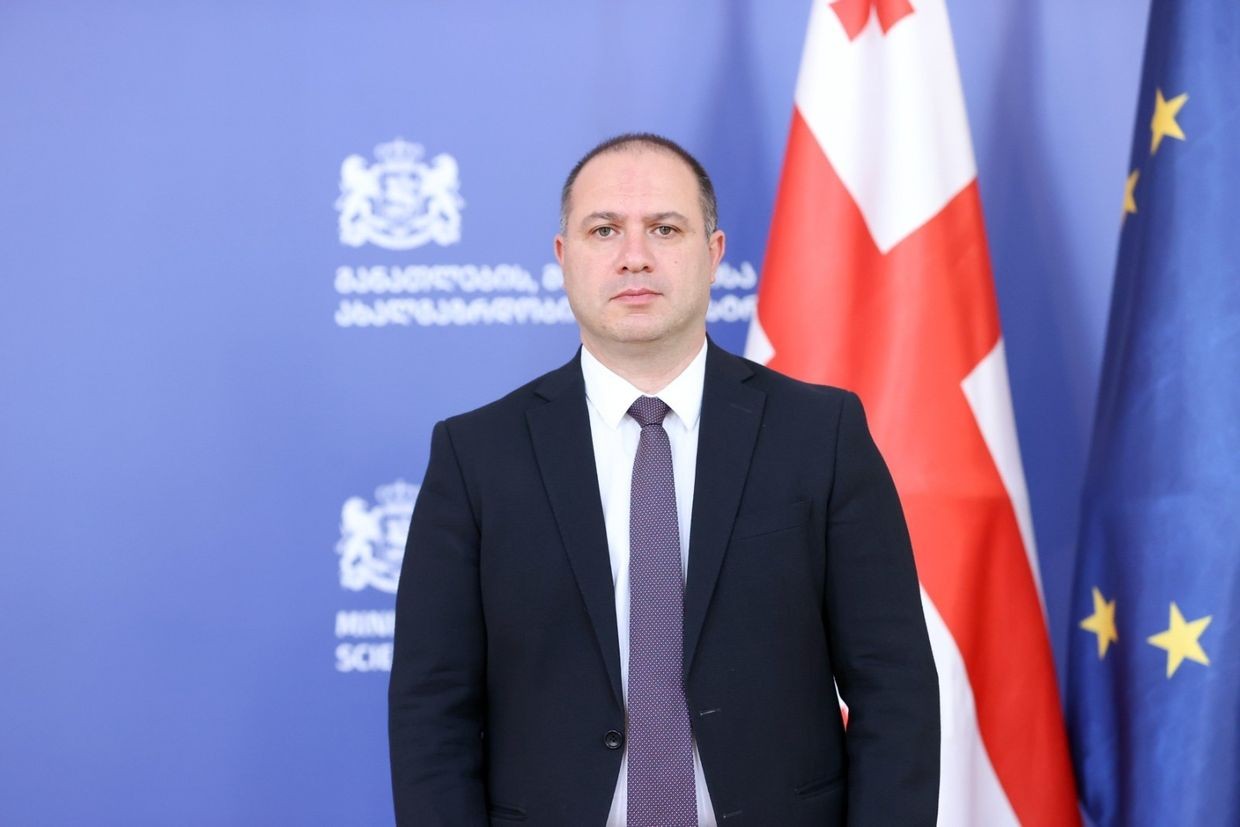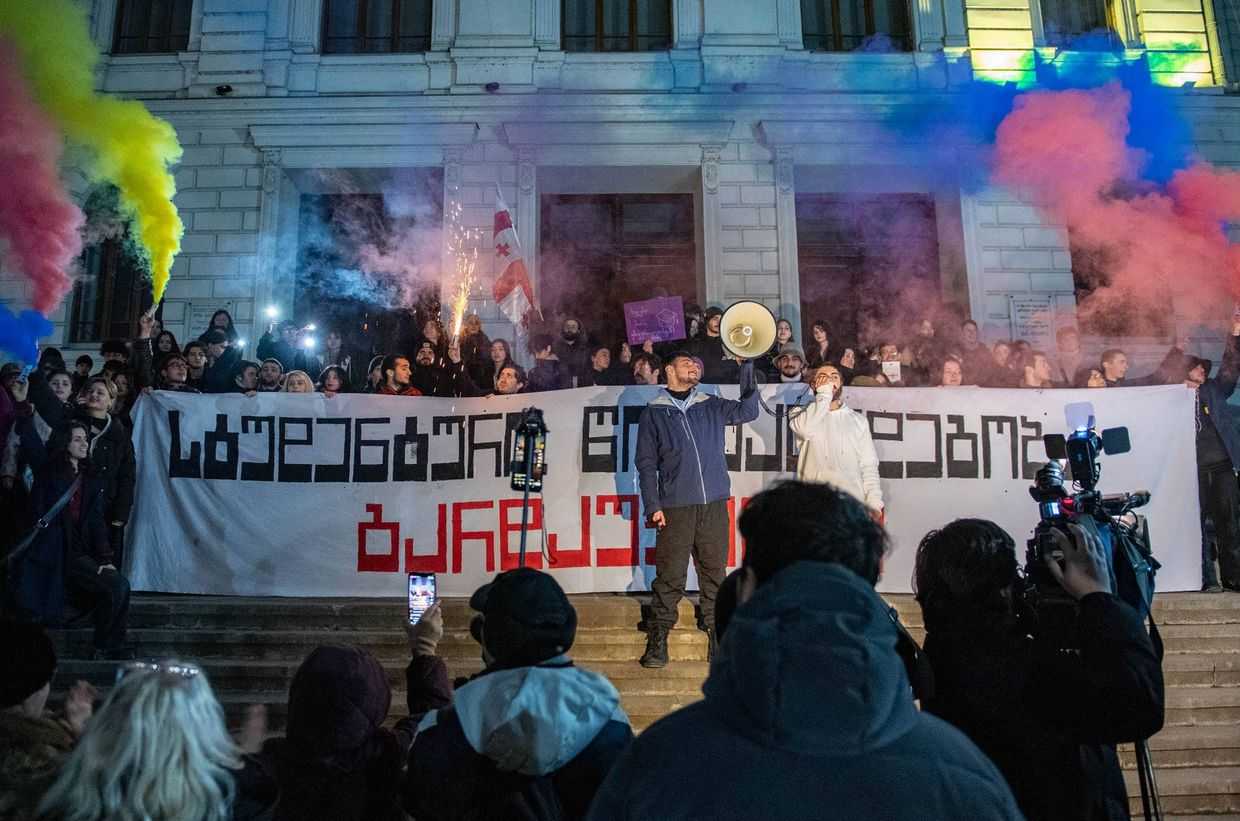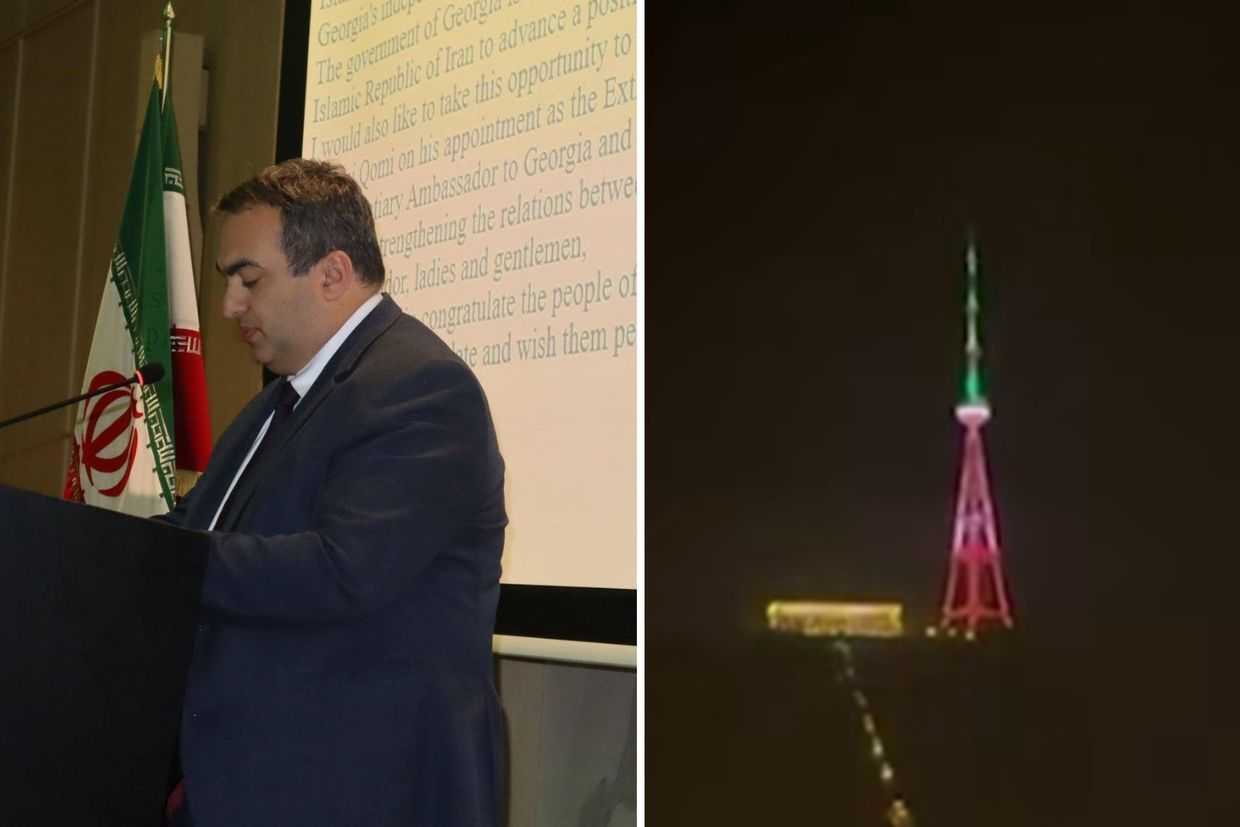
Georgia’s newly appointed Education Minister Givi Mikanadze did not complete his PhD at the Free University of Amsterdam, OC Media has revealed, despite Prime Minister Irakli Kobakhidze praising him for doing so.
Kobakhidze announced Mikanadze’s appointment as the country’s new Minister of Education on 30 June.
‘He has a deep academic education; he is a lawyer, graduated from Tbilisi State University and the University of Essex in England. He defended his doctoral dissertation at the Free University of Amsterdam’, Kobakhidze stated at a press conference, emphasising Mikanadze’s academic credentials.
Mikanadze’s publicly available biography on the Education Ministry’s website — which does not mention his Dutch PhD — states that in 2013 he was a researcher at a joint programme between the Free University of Amsterdam and the Netherlands Institute for the Study of Crime and Law Enforcement.
The biography also states that Mikanadze is a PhD student at Grigol Robakidze University as of 2025.
However, a spokesperson for the institute told OC Media that while Mikanadze was registered as a non-resident PhD student at the Free University of Amsterdam in the mid-2010s, he never completed his doctoral studies.
The spokesperson said he submitted only several chapters of his dissertation on probation supervision of life imprisonment in Georgia.
Beyond Kobakhidze’s statement, references to Mikanadze’s alleged PhD are found on his sparsely updated LinkedIn page and a Wikipedia entry — neither of which provide direct citations.
The Wikipedia entry lists the title of his dissertation as ‘The Parole System of Georgia’.
According to the information on LinkedIn, he pursued doctoral studies at the Free University of Amsterdam between 2013 and 2017, a period during which he was also employed by the Council of Europe. Afterward, he continued his career in the Ministry of Internal Affairs and later within the Georgian Dream party.
Neither the Ministry of Education nor Mikanadze responded to requests for comment.
Mikanadze was appointed in June after his predecessor, Aleksandre Tsuladze, resigned in a post on Facebook without explanation, just nine months into the job.
Mikanadze’s appointment was not without controversy, particularly due to his time in government under the United National Movement (UNM), which Georgian Dream has often labeled a ‘criminal regime’.
From 2005 to 2008, he served as deputy minister of justice, overseeing reforms to the penitentiary system, according to a ministry press release at the time. The UNM has faced multiple objections by critics — including Georgian Dream — over its management of the prison system, particularly regarding the treatment of prisoners. A scandal involving the sexual abuse of prisoners has been largely attributed to their fall from power.

This article was translated into Georgian and republished by our partner On.ge.







![Baia Margishvili standing in central Tbilisi with a sign reading: ‘The Prosecutor’s Office [is] a punitive squad. How many more innocent people will you put in prison?’ Photo: Mariam Nikuradze/OC Media.](/_next/image/?url=https%3A%2F%2Fassets.bucket.fourthestate.app%2Foc-media-prod%2Fcontent%2Fimages%2F2026%2F02%2Fcalls-for-sanctions-and-raids-19-10-25-48.jpg&w=3840&q=50)


